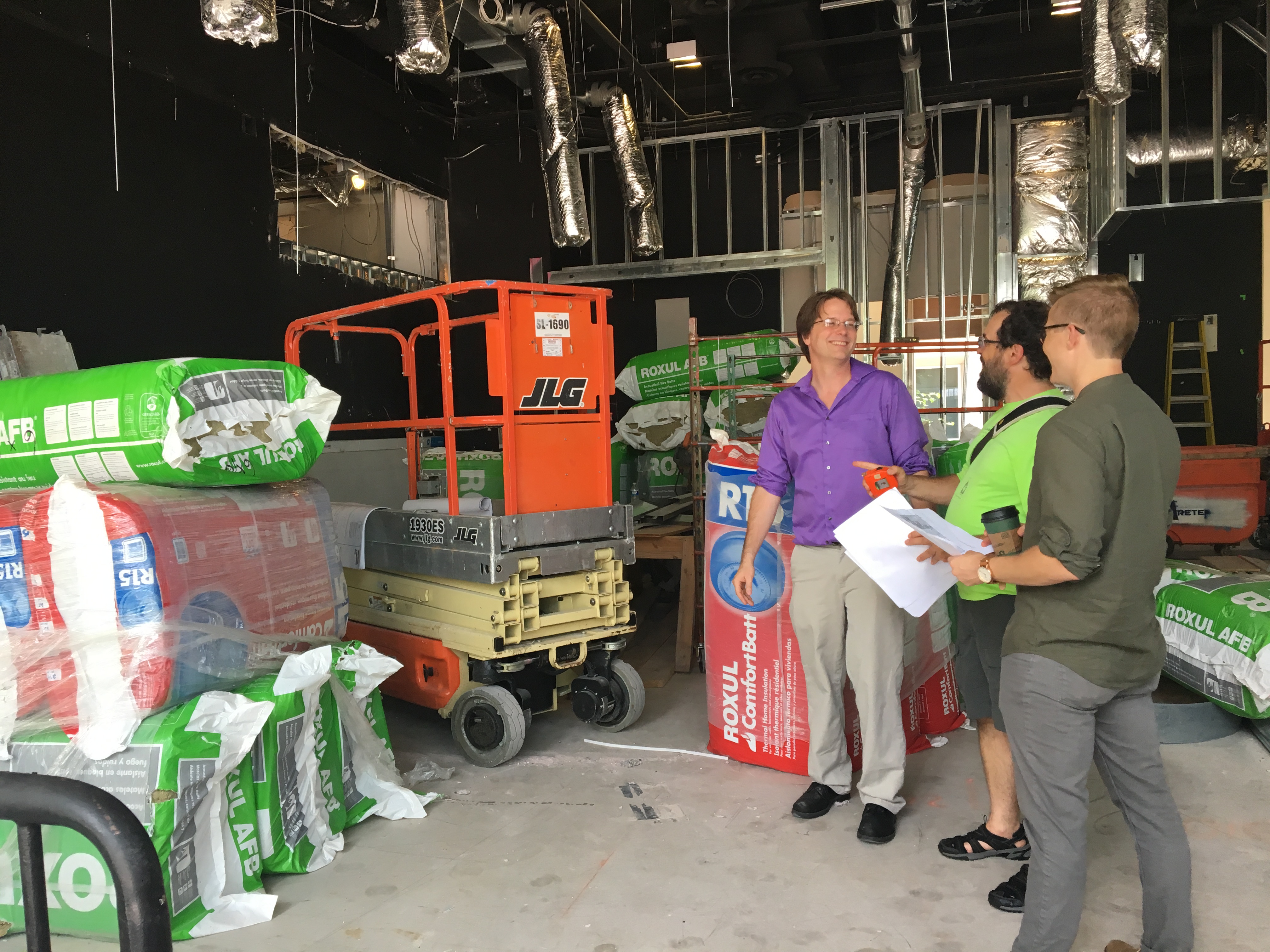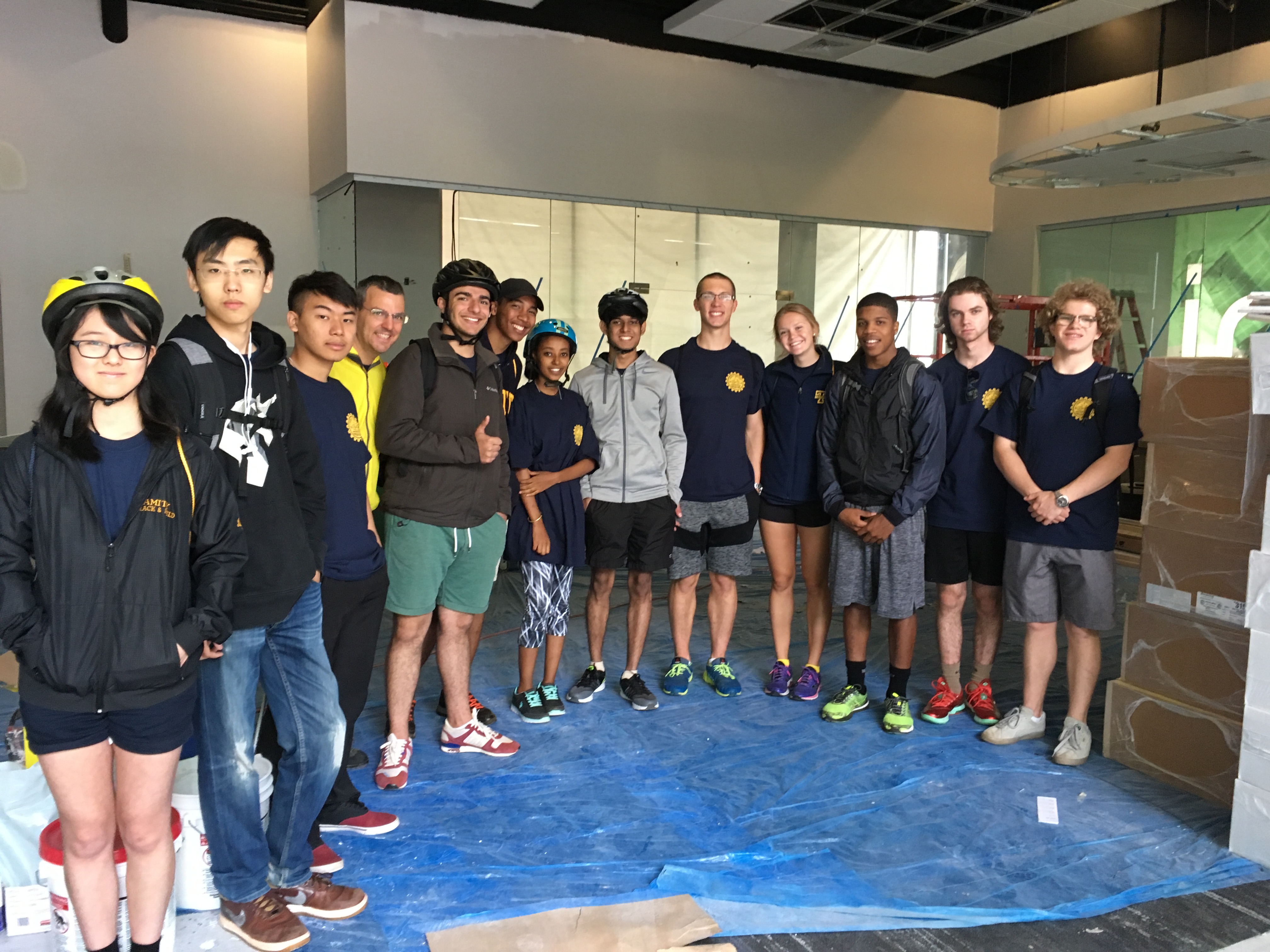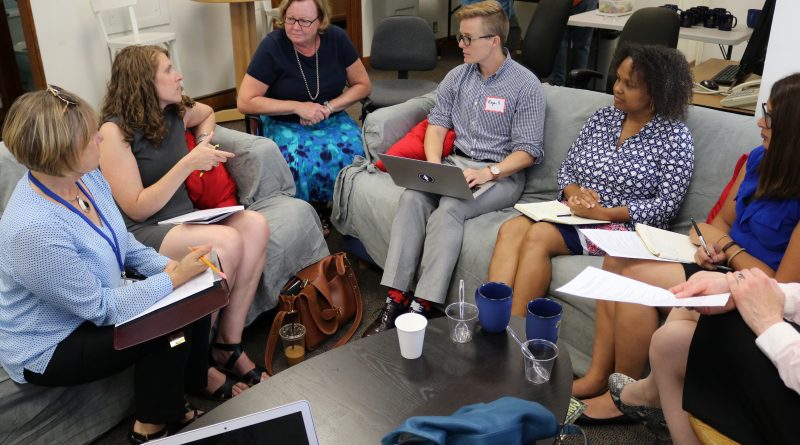Congratulations to the five Spring 2020 Action Lab Project Teams for navigating a challenging semester! The teams studied research methods and applied what they learned throughout the semester to address real-world problems facing Hartford. The teams adjusted their projects after the shift to remote learning, and each group created a website about their research and presented findings to their community partners. Although this semester’s Digital Poster Fair was canceled, there’s still a chance to see the students’ hard work and the impact they made.
Read more below to see the results of the project teams: HIV-Community Health with Yale School of Public Health: ARCH Lab, Black Heritage with Hartford History Center, Addiction Treatment with InterCommunity Health Care, Arts Education with Hartford Performs, and Neighborhood Communications with the City of Hartford’s Office of Community Engagement.
HIV Community-Health
This project team researched Community Health Workers (CHWs) and their impact on health outcomes for their patients living with HIV. Students also focused on new certification requirements for CHWs and how this affects their work. Using a snowball sampling method, students conducted qualitative interviews with current CHWs and data analysts involved in research surrounding the role of CHWs in HIV-related care. The project found that CHWs help improve health outcomes by serving as a liaison between community members and health care providers, advocating for their clients, and working to combat internal and external stigma. They also work to help clients overcome barriers to care including housing, transportation, language services, and education. The project team also found the recent certification option for CHWs did not meet initial expectations and raised important questions regarding the scope of practice, essential skills, and funding. The team recommended appropriately regulating and professionalizing the role by defining the scope of practice, making work done by CHWs billable, creating a standardized training program, and having employers fund certification for current CHWs. Learn more: action-lab.org/hiv-community-health
Students: Shian Earlington (CCC), Frances Gibson (CCC), Giovanni Jones (TC ’21), Max Norteman (TC ’23), and Lucy Pereira (TC ’20)
Community Partner: Cecil Tengatenga, Yale School of Public Health: ARCH Lab
Faculty Fellow: Adolfo Sanchez-Blanco, Capital Community College
Black Heritage
This team worked with their community partner, the Hartford History Center, to raise awareness about the Talcott Street Congregational Church, the first black Congregational church in Hartford and the third in the nation. Students conducted archival research at Hartford History Center, Harriet Beecher Stowe Center, and the Old State House. The team met with staff at the Old State House and with members from Faith Congregational Church, the contemporary location of the Talcott Street Church. Students studied works by Ann Plato, a Hartford native and 19th-century educator and author, and accounts from the life of Reverend James Pennington, among other primary source documents. The project team created an online exhibit on their website to highlight the church’s timeline and important leaders. They also drafted a proposal for the Chief Executive Officer of Capital Community College to memorialize the historical site. The proposal included both short-term ideas, such as workshops for faculty members to learn more about the church’s significance, and longer-term initiatives, such as a dedicated research course focusing on the church. The team also provided ideas for the city to help highlight the church, such as creating a permanent exhibit and memorializing the site on the Freedom Trail. Learn more: action-lab.org/black-heritage
Students: Aliyah Freeman-Johnson (CCC), Julian Hogan (CCC), Armani Parnther (CCC), and Mercy Unoh (TC ’23)
Community Partner: Jasmin Agosto and Brenda Miller, Hartford History Center at Hartford Public Library
Faculty Fellow: Stephen Thorton, Shoeleather History Project
Addiction Treatment
This group conducted research to help determine if the I CAN Recover model was more effective at treating addiction than other models. The team’s community partner, InterCommunity Health Care, planned to conduct an experiment to demonstrate the benefits of this model with the intention of making it available for other facilities to implement. Students completed a literature review to determine the most effective research designs by identifying similar treatment effectiveness studies. They proposed three research plans: a random assignment option, a pre-post option, and a quasi-experiment option. They proposed measuring treatment effectiveness using retention rates, number of sober days per month, admissions to the emergency department, and deaths due to opioid overdose. All design proposals would use a point-based system to incentivize participation. Learn more: action-lab.org/addiction-treatment
Students: Lauren Mac Master (TC ’20), Nina Montross (TC ’20), Arianna O’Brien (TC ’20), Jasmin Parras (TC ’23), and Adrian Rivera (TC ’20)
Community Partner: Tyler Booth, InterCommunity Health Care
Faculty Fellow: Laura Holt, Trinity College
Arts Education
In this project, students worked with Hartford Perform to research the impact of Hartford Performs’ programming in Hartford Public Schools and the effectiveness of arts-based education. This team conducted a focus group of teaching artists and interviewed parents to gain a comprehensive understanding of both the program’s impact on Hartford students and insight on program logistics. Students also observed classrooms in different public schools across Hartford to investigate the effects of teaching artists’ engagement with students. The project team found that arts integration in the classroom improves creativity, self-expression, and student engagement. They recommended expanding the program into middle and high schools, increasing funding for Hartford Performs, and more communication between Hartford Performs, teaching artists, and parents. Learn more: action-lab.org/arts-education
Students: Sara Barrett (TC ’21), Ava Goncalves (TC ’20), Levey Kardulis (CCC), Brenda Ordonez (TC ’22), and Lashawn Robinson (CCC)
Community Partner: Jeanika Browne-Springer, Hartford Performs
Faculty Fellow: Rebecca Pappas, Trinity College
Neighborhood Communications
This project team worked with the City of Hartford’s Office of Community Engagement to improve communication between the city government and Hartford city residents. The team investigated how residents currently received information about city services, what city services people were most interested in hearing about, and how residents experienced the process of trying to contact the city. Students conducted in-person qualitative interviews with 25 residents and distributed an online survey through social media. From the in-person interviews, the team found that the majority of participants noted word-of-mouth as their primary channel of information about city services. While 67% of residents interviewed were “satisfied” with the information they received from the city, less than half of the participants contacted the city directly. Preferred methods of communication about city services included an email letter, texting service, and a newsletter. From the online survey, the team found both residents and non-residents used phone calls over any other form of communication to contact the city. However, more Hartford resident’s utilized the city’s 3-1-1 app. Students suggested implementing a city-wide texting service, an email newsletter, and a print newsletter posted in public places central to the community. Learn more: action-lab.org/neighborhood-communications
Students: Victoria Asfalg (TC ’23), Lillian Foote (TC ’21), and Sulemaan Khalid (TC ’23)
Community Partner: Janice Castle, City of Hartford’s Office of Community Engagement
Faculty Fellow: Aidalí Aponte-Aviles, Trinity College


